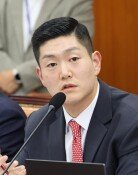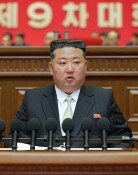Anti-corruption education sidelined in school curricula
Anti-corruption education sidelined in school curricula
Posted October. 28, 2014 07:46,
Integrity education at schools has been sidelined due to school curricula focused on admission to upper schools. The Gyeonggi Provincial Office of Education has decided to add a segment on anti-corruption in a revised edition of its textbook of democratic citizens for primary and secondary schools from next year, and this is the first case that integrity education is included in textbooks and addressed at regular school curricula.
The subject of integrity has been superficially dealt with at best in the form of virtues for civil servants and heroes of integrity in certain textbooks. Educational offices sent official letters recommending education on integrity to schools, but it was only recommendation. Integrity education through entrustment to civic groups, such as Young Korean Academy and Transparent International Korea, also had limitations given that it was conducted on a limited basis only at schools that apply for the program.
Such reality of integrity education derives from the recognition that "anti-corruption education can be adequately conducted through the existing ethics subject or education on personality," or "political, administrative and institutional response is more effective than establishment of values.
However, the situation is different overseas. Not only countries with free of corruption, such as Singapore and Hong Kong, but also many countries that are saddled with corruptions, including China, Pakistan, and Lithuania, recognize the importance of anti-corruption education for teenagers, and teach this as part of regular curricular subject.
Since 2005, China has been conducting education on anti-corruption struggle through elementary and middle school textbooks and curricula in the belief that to prevent corruption, education should be provided to students from young ages without fail. In Italy, schools invite people who fight corruption in local communities as lectures, effectively using adults who are fighting Mafia and match-fixing in soccer as "live anti-corruption textbooks." In the U.S., schools teach as the standard of honesty an episode of George Washington, the founding father of the U.S., as a regular curricular subject from young age.
Anna Thayenthal, the Asia Pacific regional head of the Youth Integrity Promotion Programme at Transparency International, said, Integrity is learned just like corruption. Teenagers are the only troubleshooter of corruption problems, in stressing anti-corruption education for teenagers.
Prof. Kim Kyung-il at Ajou University said, We need to heavily concentrate on anti-corruption education from the adolescence period when they are highly sensitive to corruptions.







